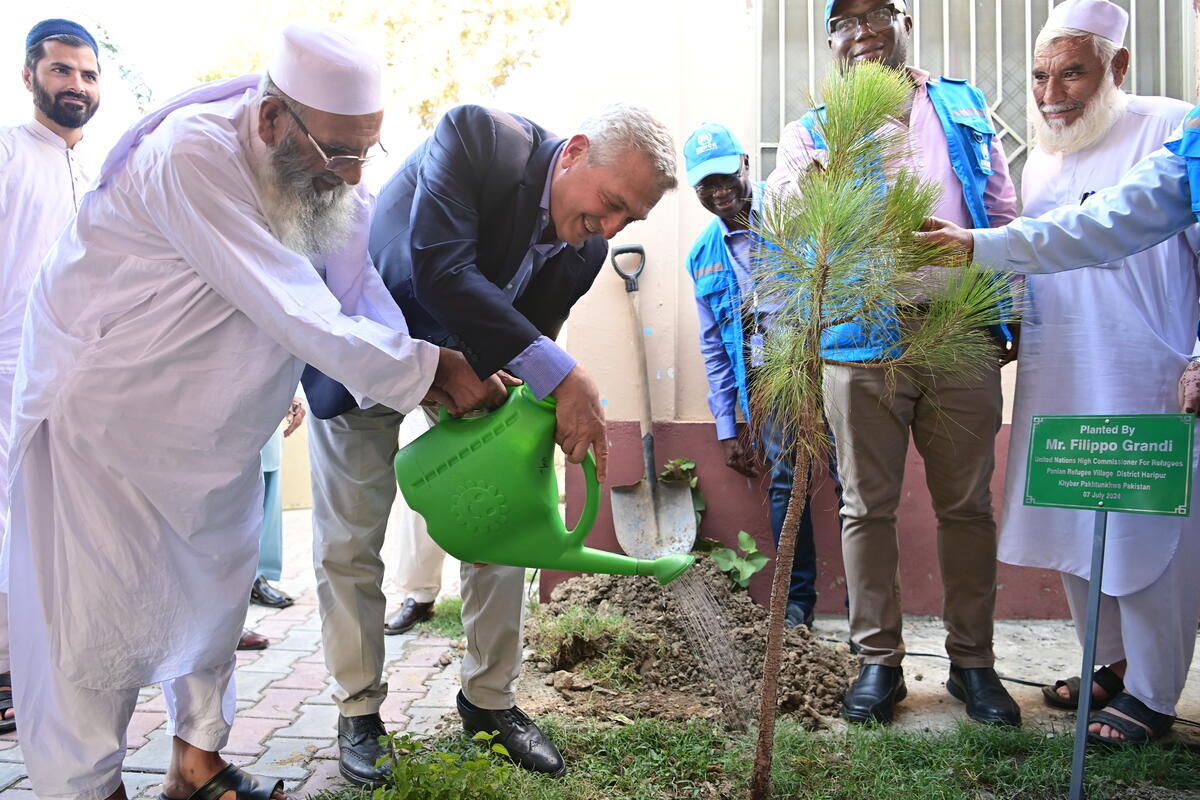UNHCR consolidates operations in Afghanistan
UNHCR consolidates operations in Afghanistan

ISLAMABAD, Nov. 22 (UNHCR) - The U.N. refugee agency is consolidating and slowly expanding its operations inside Afghanistan despite continued security worries. New reports said tens of thousands of civilians were living in extremely difficult conditions in two regions of that country.
After re-establishing its presence in the capital, Kabul, UNHCR is re-activiting so-called quick impact projects to produce quilts and sweaters which will be distributed to children for the forthcoming winter. Stoves for heating and cooking will also be provided to some of the most needy families in the city.
Nearly 20 local staff resumed work in Herat, in the western part of Afghanistan, though another office to the south, in Farah, was reputedly looted in the last few days. That underscored the continuing security worries facing the agency as it extends its operations inside the country.
Field staff in Farah received reports that more than 50,000 persons were living in 'dire conditions' at a site near the town and no relief agencies were present. Hundreds of persons each day were also continuing to move into Maslakh camp near Heart, and UNHCR was making preparations to bring in a second relief convoy with emergency supplies from the Iranian city of Mashad after the arrival of an initial convoy Thursday to help the displaced.
Civilians arriving in Pakistan from southern Afghanistan told UNHCR staff that as many as 60,000 people were now living in three large tented camps in the Spin Boldak area of Afghanistan, adjacent to the Chaman border crossing. It was unclear whether the civilians at Rabita Alam el Islam, Ben Rashid Maktun and Al Rashid wanted to cross into Pakistan or whether they were being held back.
On the returnee front, 5,807 Afghans went home from Iran in the last few days, the highest weekly return figure this year. That brings to 43,693 the number of Afghans who have spontaneously returned home since September 11.
In Pakistan, UNHCR and local authorities agreed to open two new sites in the Kurram agency of North-West Frontier Province. Basu site will house Shia Afghans and Old Bagazai will accommodate Tajiks, Uzbeks and other minorities, each holding up to 10,000 people.
Thursday, 431 persons were transferred from a site at Jalozai to the new Kotkai camp which has better facilities, bringing the total number of people there to 1,700.









